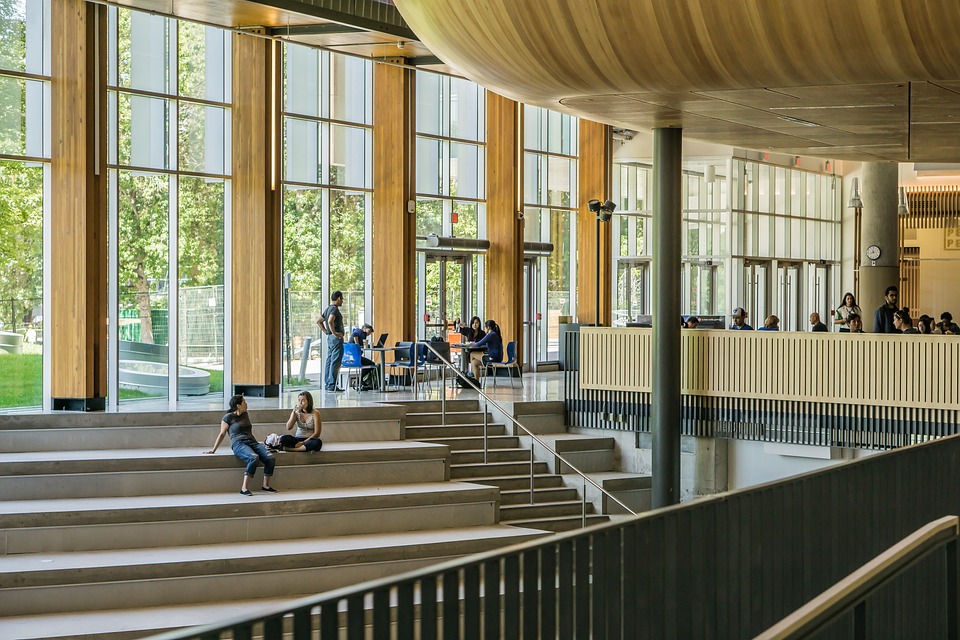
University students encounter numerous hindrances in handling mental health issues. Mental health issues can have an effect on the way somebody feels, behaves, and how they think on a day-to-day basis. Some of the regular health problems which college students encounter include depression, anxiety, attention-deficit hyperactivity disorder (ADHD), and varied types of eating disorders. It is possible to get medical treatment for these health conditions, a medical expert can identify them, and they have access to numerous resources. A person struggling with these conditions can obtain help and relief through therapy, drugs, and even just chatting with a close friend.
Anxiety
What is it?
Anxiety is a physiological reaction to situations or events that bring about worries or tension. Fortunately, all people go through periods of anxiety in their lives. Many individuals experience sporadic instances of nervousness, but for others, these anxious feelings may last for extended periods of time, in some cases up to years. This can have serious repercussions on their everyday lives and lifestyle. When anxiousness starts to obstruct daily living, there’s a chance that a person has an anxiety disorder. When experiencing stress or worry, the body gets prepared for any potential danger by causing the flight or fight response. This can lead to strong emotions of fear and uneasiness about what lies ahead. Other indications of the condition may include being fidgety, a faster heart rate, having trouble drifting off to sleep and remaining asleep, and more. It’s essential to recognize the various symptoms of anxiety since not everyone experiences it in the same way.
What are the common symptoms?
Anxiety can manifest itself in more ways than just restlessness, a fast heartbeat, and trouble sleeping. Symptoms also include:
- Rapid breathing
- Increased heavy sweating
- Trembling or muscle twitching
- Difficulty focusing on things other than what is causing the worry
- A strong desire to avoid things that can spark feelings of anxiousness
- Performing certain behaviors repeatedly
- Anxiety surrounding a particular life event in the past (also indicative in PTSD)
- Digestive issues
Why are students faced with anxiety? What are the types of anxiety disorders?
Anxiety is prevalent in college students for multiple reasons. College students are undergoing a substantial transformation in their lives. In addition to the worries brought on by the school, managing several extracurriculars, a job, and a heavy course load can be a source of stress. Although medical professionals are aware of these facts, they are still not entirely sure what triggers anxiety disorders. At this time, the supposition is that anxiety is a result of previous traumatic events, heredity, and medical problems. There are several forms of anxiety disorders; these include, but are not limited to:
- Agoraphobia is a fear of places that makes an individual feel trapped or powerless.
- Generalized anxiety disorder, where one experiences constant worry even during ordinary activities. This is also accompanied by physical symptoms such as headaches.
- Obsessive-Compulsive Disorder is the continual experience of unwanted or intrusive thoughts and worries that cause anxiety.
- Post-traumatic stress disorder, which occurs after an individual experiences a traumatic life event. Symptoms include trouble sleeping, disturbing dreams, and flashbacks of the event.
How is anxiety treated?
If you or a person close to you is struggling with anxiousness and feels that assistance is necessary, a wise decision would be to consult with a psychologist in order to be diagnosed with the problem. If the condition is severe, one may need to obtain medication through a psychiatrist to be treated. If no drugs are needed, anxiety can be addressed and managed effectively through only verbal communication. It can be tricky to locate the best professional for you, but you will know you’ve made the right choice if you feel relaxed while talking to them about your stress. If therapy is not a viable solution, there are self-care treatments and methods of coping with this disorder which can be done in the home. The Anxiety and Depression Association of America (ADAA) offers a catalog of meeting groups to assist individuals suffering from anxiousness and other mental health difficulties. The Mayo Clinic Anxiety Disorders page gives advice on how to handle stress from discovering potential causes to effectively managing your time.
Academic Accommodations for Students with Mental Health Conditions
Many individuals suffering from mental health problems often think of themselves as isolated and believe they have to manage their situation by themselves- which is not correct. Both traditional campuses and online schools offer housing options for students who have been diagnosed and disclosed psychological health issues.
You can ask either the health services or student support at your school to help you figure out what academic adaptations are available, such as different assignments or taking breaks in class. They will provide guidance on what to do.
1. Extended Test Times and Spaces
People who suffer from anxiety or panic will likely be affected negatively when confronted with a timed exam or project, typically resulting in an inability to perform at their highest level. Mercifully, numerous universities are sympathetic to these circumstances and collaborate with students to assist them to accomplish their best in taxing testing settings.
This involves prolonging the length of exams or setting aside distinct examination rooms that are more tranquil than the standard classroom. This can help relax students and assist them in concentrating on the task at hand, instead of the time still left or the testing situation they’re in. These lodgings are appropriate for students with health issues that might become inflamed during an examination or hinder their success. Universities hope for you to put forth your utmost effort, and having more time and areas to take exams can aid you in doing so.
2. Deadline Extensions
Cutoff dates are nerve-wracking for everyone – yet for students who have anxiety or other panic disorder, they can be nearly devastating. Many students find having an expiry date a great motivator and work to the best of their ability when trying to meet the deadline, while others are overwhelmed and unable to adequately achieve the desired results.
Many students who have a recognized mental health condition that can be triggered by time limits or the pressure of a deadline may get a prolongation of the assignment. You ought to acquire the deadline extension as soon as you learn about the task – instructors are understanding, but they will not be likely to offer an extension to a person who requests one on the day their assignment is due.
3. Assignment Alternatives
Some tasks are made difficult on intention, while other tasks may be too demanding for some pupils. Assignments such as presentations and group work can cause tremendous amounts of stress and worry for individuals who have been diagnosed with mental health issues, making them difficult to finish.
It is not advisable to look for a different task for each class, however, students with a publicized mental health problem could be entitled to assignments that adhere to their wellness and suit them better.
4. Breaks & Classroom Accommodations
These accommodations may involve exiting the class early, taking regular breaks during the lesson, getting preferential seating, and/or using more advanced equipment in the classroom. All of these alterations are meant to create a more comfortable and peaceful atmosphere for students in the classroom, permitting them to concentrate on the lecture and perform their best.
5. Additional Technology Use
Students with mental health conditions may need extra support in a classroom setting, and assistive technology can be a beneficial resource. Similar to students with disabilities, these tools can help them adapt to the educational atmosphere. In order to perform to the best of your capabilities, you must have the necessary tools to achieve success – and this can be achieved by utilizing technology outside of the traditional classroom materials.
It is possible to utilize technology in a variety of ways during a course of study, such as documented or recorded lectures, access to video-recorded lectures and syllabus, utilization of electronic resources while taking examinations, and writing down notes with a computer instead of using pen and paper. A wide variety of assistive technology is available to support pupils in need; all that is necessary is to seek it out.
6. Student Accommodation/Accessibility Services
Student Accommodation Services is a place to visit if you have been identified as having a mental health difficulty so you can get help with studying or learning in the classroom. Many university students could potentially have mental health issues that are not recognized, yet universities usually demand the statement of a medical advisor or doctor to sanction any academic adjustment or exception.
Once you have been medically certified to require specific arrangements due to a medical condition, it is typically necessary to inform your teachers about your situation individually. Student Accommodation Services could take care of this for you, but it is usually the student’s responsibility to make sure that all of their teachers are aware of their course attendance.
Finding On- and Off-Campus Support
The scariest part of having a mental health problem is the sense of isolation accompanied by the thought that nobody is here to help you, however, this is untrue. Many sources of help are available to aid you in managing your mental health, such as family members, friends, counselors, or therapists. Both on-campus and off-campus support is available.
Student Health Services
Students that don’t know what to do about their mental health should look into their university’s student health services to get started. The support available at different universities changes; some have counselors on-site or online, while some may give advice to local medical professionals such as hospitals, therapists, or physicians.
Someone from student health will normally be available to hear you out and guide you in understanding what you are going through. For those who are displaying symptoms of a mental health issue for the first time, this might be an intimidating and unpredictable period. counselors or therapists at student health, who can be either obtaining their master’s or doctorate degrees, are available to help individuals, or they can even help point them in the right direction to finding a better solution, such as engaging in group therapy or counseling.
Family Doctors or Therapists
Many medical practitioners suggest participating in conversation therapy prior to taking medication for those who are considering they may be struggling with a mental health problem. Therapists are knowledgeable experts who are prepared to provide you with emotional support, as well as assist you in expanding your comprehension of your problems and yourself.
Universities usually provide mental health services in the form of counselors or can help you locate one, both on-site and on the Internet. Participating in counseling can be extremely valuable for one’s psychological well-being, even if they haven’t been given a diagnosis or have been identified with an illness. They assist patients in finding beneficial approaches to their circumstances or other sources of pressure, including breathing exercises, activities from workbooks, and additional solutions.
Group Counseling or Counseling Centers
If you have been given a prognosis of any psychological illness, such as bipolar, depression, or borderline personality disorder, collective therapy can be a beneficial resource. In this setting, you will be among people who have similar afflictions. With the help of a medical specialist, you’ll engage in dialogues about the indications of your illness, methods for dealing with it, and any difficulties that come up in your everyday life.
Group therapy and advice clinics are ideal selections for anybody experiencing seclusion due to their ailment, or who would rather work in a collective atmosphere. Having other people around you who share the same experiences can offer a secure base to get a clearer idea of who you are, your condition, and methods to work through any challenges you could encounter.
Ways to Maintain Mental Health in College
1. Be Active
A study at Harvard T.H. Research conducted at the Chan School of Public Health revealed that individuals who engaged in physical activity frequently were less likely to experience or display indicators of depression.
All forms of exercise, from the most strenuous like running and physical games to the low-key like yoga and stretching, have been found to be effective. From the research, it looks like doing approximately 35 minutes of fitness activity every day might help reduce the potential of becoming depressed or going through depressive symptoms.
2. Ask for Help
While there are plenty of resources to turn to while on campus, it can be difficult to not feel lonely during college. It can feel like there’s no one available to provide support when your peers have made staying up late and cramming seem like a competition. It’s as if you are all striving to see who can last the longest without sleep or rest.
It is essential to recognize that you can get assistance if you ever have a requirement, so don’t wait to find out. It is probable that you possess allies, whether they be teachers, acquaintances, friends, or family, that you can seek support when times are difficult. No matter what mental health issue you’re struggling with, feeling exhausted, or needing assistance, just reach out and ask for help.
3. Eat Regularly & Well
Many are unaware that the human brain and digestive system have multiple connections. Almost all of your serotonin is made in the gastrointestinal system, which has hundreds of millions of neural cells that direct your thoughts and emotions.
In other words, your diet has an immediate effect on your mental well-being and state of mind. Research has revealed that consuming diets that are traditional, such as Japanese and Mediterranean, which are made up of lots of vegetables, whole grains, and seafood, can reduce the risk of developing depression by 25-35% in comparison to diets that are considered to be “Western”, which usually contain large amounts of processed and refined sugars and fats.
Experts suggest having three nutritious meals a day full of fruits, veggies, and sources of protein like fish.
4. Quiet Your Mind
It appears that there are tons of minor details for college students to be concerned about, such as due dates, grades, tests, and the things needed for classes. This additional pressure from the current climate can be harmful to people living with a mental disorder, as it can make everyday activities such as winding down for bed or reaching a peaceful state of mind more difficult.
It is critical to possess techniques that give you the ability to still your thoughts and grant yourself the well-deserved opportunity to set your attention on yourself and be wholly devoted to it. Meditation, activities such as yoga, document keeping, or other reflective activities like these can give you the opportunity to take a break from regular stressors and face your day with crisp understanding.














